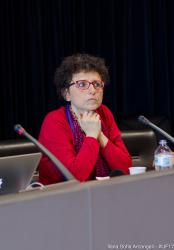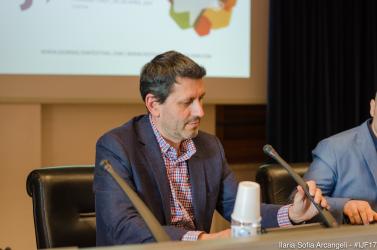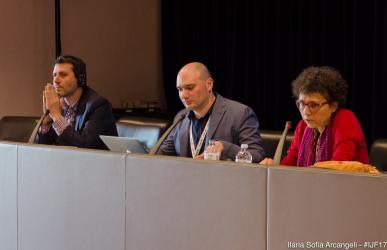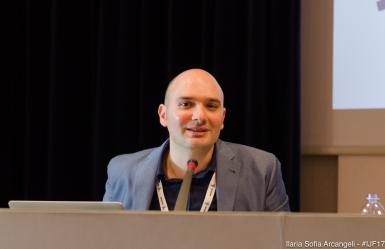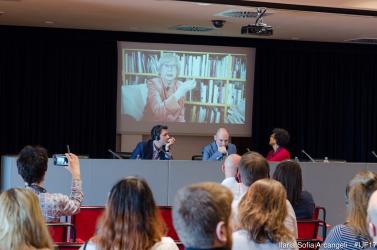Words can be walls or bridges: they can create distance or help the understanding of problems. Journalists can be protagonists of a narrative that reduces the risk of discrimination, but how should the media talk about this risk? Are minorities discussed only by narrating their state of victimhood, or accepting their dissonant, new, provocative voice? After the achievement of a part of civil rights in Italy, a question arises: why are LGBTs in the news today? Because we can celebrate civil unions or because of the massacre in Orlando? Or even for the use of so-called “surrogate mothers”, which raises controversy when used by gay couples? There are obligatory paths in the media: you talk about LGBTs with regard to the achievement of rights, to discrimination, to oddity. Their voice is missing. It could be all mainstream media’s fault, they cannot draw new roads or, on the contrary, it could be a responsibility of the LGBT movement that, trapped into the “logic of the minority”, is unable to make its presence felt in the media with far-reaching proposals. A minority is expected to have a political and cultural vision as well, a treasure trove of resources born thanks to its position as observatory of underrepresented realities. The panel, considering these aspects, will assess the proposals made by the media in Italy and elsewhere, identifying convergences and differences. An easy example: gays and lesbians mobilized for miners in England in 1984. Is this a unique case?



